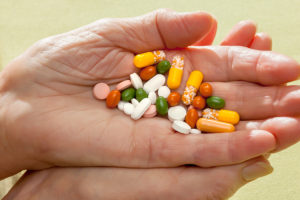Many seniors eat less, which means they are at risk of deficiencies in vitamins and minerals. Each vitamin that is consumed fuels the body in multiple ways and is important for the body to function. Unfortunately, seniors have some common dietary deficiencies that many health professionals often see. The best way to ensure this doesn’t happen is by getting blood levels checked regularly. This means a doctor will review the blood charts and tell the senior precisely what they are missing and how to add it in. 24-hour home care can drive the senior to appointments or help them cook meals based on what the doctor says.
Sometimes seniors refuse to eat because they can no longer taste how they used to or hate cooking. This can lead to a lack of appetite. As someone ages, their body also changes, and that can lead to appetite loss. A lot of dietary deficiencies can be linked to other chronic conditions that need medication or help from the doctor or other health care professional.
If it is not a chronic illness, it could be other things that are causing a deficiency in a senior’s body. Things like poor diet intake can cause malnutrition, psychological changes that affect memory, financial situations, or medications. All of this can impact a senior’s ability to eat, affecting the number of vitamins and minerals they get. If they are forgetting to eat due to psychological changes, 24-hour home care can help remind a senior to eat. Here are a few common deficiencies to keep in mind when caring for seniors.
Calcium Deficiency

24-Hour Home Care Woodbury, NY: Dietary Deficiencies
Calcium, which is essential for bone density and strength, can be found in dark leafy greens, dairy products, and calcium-specific supplements. Calcium deficiency can cause bone density loss, decreased mobility, and falls.
Vitamin D Deficiency
This vitamin, when combined with calcium, promotes bone health and strength. Vitamin D is absorbed by the body naturally through sunlight, but it is also found in certain types of fish and fortified foods such as orange juice or milk.
Vitamin C Deficiency
This vitamin aids in protein absorption as well as the formation of connective tissue, which is necessary for wound healing. Vitamin C also contains antioxidants, which may aid in the fight against diseases such as cancer. Brightly colored fruits and vegetables, such as citrus fruits, tomatoes, and bell peppers, are the best sources of Vitamin C.
Vitamin E Deficiency
Vitamin E’s antioxidant properties enable it to combat disease-causing free radicals. This vitamin also aids in the proper functioning of the immune system. Nuts, seeds, and vegetable oils are high in vitamin E.
Magnesium Deficiency
This mineral is involved in a variety of bodily processes, including glucose and blood pressure regulation. Magnesium can be found in a variety of plant and animal foods, particularly dark leafy greens, nuts, seeds, and whole grains.
Seniors can avoid these deficiencies by eating well-rounded and focusing on healthy options. If seniors hate cooking they may stick to frozen meals which can harm them more than help them.
